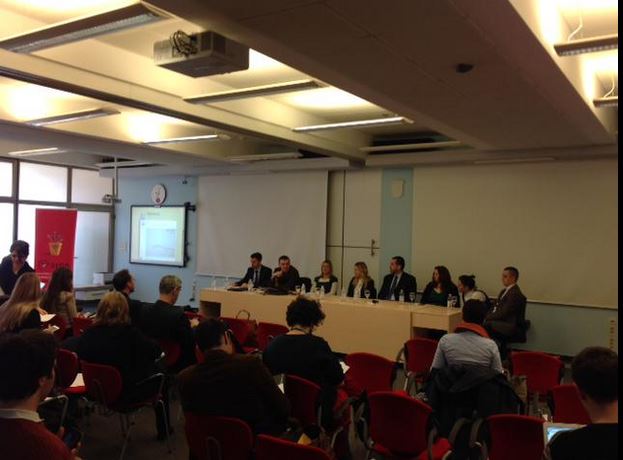Can you imagine public websites providing citizens with the data on every outlay by every ministry, state office or agency, who authorized what payment, when staff salaries were paid and what they amounted to, or how official credit cards are charged? Can
It would be easy to dismiss the idea by saying: „in
This is why open data should be on the agenda daily and not only on the occasion of the International Open Data Day, February 21 – The Civic Innovations Weekend. The Open Data Day is celebrated through activities by the CodeAcross organization, including a discussion on improving existing future databases in
Tomislav Vračić of the Ministry of Public Administration announced that, in a couple of weeks, the public should finally lay its eyes on the long-awaited (scheduled for last summer and delayed several times since) data.gov.hr website, entirely open-source and utilizing software developed in the
„As a centralized information point for information on, for example, budgets, transport, education and health, data.gov.hr should contain the databases of all public bodies and help citizens obtain the data they need without meandering through various webpages and portals with very uneven designs and data publication standards“, stated Dalibor Dvorny of the Office of the Government, reminding of the importance of the Open Government Partnership. He went on to say that the Government is well-aware of the scope of the challenge, but also proud of the e-citizen project, with an e-consultations portal due to come online on March 9. Igor Vidačak from the Office for Co-operation with NGOs, the new portal will be a central point for citizens to provide inputs to bills and draft regulation, utilizing a simple application instead of sending filled forms as attachments.
„Consultations became rather developed as the years went by; for example, 380 consultative processes were opened in 2013, and 550 were opened in 2014, with the public getting involved with 17,500 comments, of which 11,500 were taken into consideration and a third thereof ultimately influencing legislation.“ Vidačak then announced that there would be a call for projects utilizing open data, funded from the European Social Fund and worth 3 million Euros.
Data should be given back to the citizens
In particular, the amendments will be a harmonization with the European Parliament and Council Directive, stemming from the year 2003 and prescribing the conditions and terms of information re-use for commercial and non-commercial purposes. The deadline for implementing the Directive expires mid-July, with harmonization now on the agenda of all Member States. Musa explained how the Directive expands the definition of public bodies, with libraries, museums and archives now under the obligation to produce re-usable information, as well as to establish the costs and terms of its re-use, including copyrights. The re-use of data has the ultimate goal of creating new added value and contributing to the economy.
With that in mind, it should be mentioned that a research conducted for the purposes of the European Commission on the economic value of open data has demonstrated that the value data openness could amount to as much as 140 billion Euros annually in the Member States. There is still no precise data for
Some data, like the one pertaining to national security, will never make it “out there”; at the same time, a major part of the data on the work of state and local authorities is available even now, but is “buried” under heaps of content in non-standardized places. Published data is not the same as open or searchable data, which is precisely what data.gov.hr should change by unifying databases to benefit citizens and businesses.
Just imagine if local government units were to publish the results of a research on the quality of pre-school or utilities, if the Ministry of Science and Education published data on the quality of schools, the Ministry of the Interior on crime rates. Someone could bring all the data together and established where in
Governance principles for the 21st century
Head of the UK Governmental Department for Transparency and Digitalization Eleanor Stewart applauded
Although the UK Parliament is facing similar challenges in terms of data linkages, she added that all of the Parliament’s records from its inception are digitalized and searchable. In addition, all MPs have their own webpages and are active on various social networks. The same principles, though not codified, are respected at the local level, with the Prime Minister guaranteeing that the standards will not go down, but only up. Central is the idea that MPs need to work with the citizens’ best interests in mind and that this makes up the cornerstone of democratic governance. Access to data is becoming an integral part of legislation in the 21st century, with the Croatian Parliament still facing a lot of catching up.
Available data can generate added value and profits. It is precisely open data that brings profits to Invest In Croatia, whose founder Marinko Brkić-Tot explained it to be a platform to collate and organize the various data into a single information flow necessary for investors interested in investing into
The project makes profits off of market and market niche research, with Internet business optimization also available to clients. Brkić-Tot sees important opportunities for the media in so-called data-driven journalism, i.e. reporting based not only on data, but also on its visualizations, which is valuable to both the digital media’s outreach and the citizens’ access to data in a legible format instead of spread sheets full of data.
